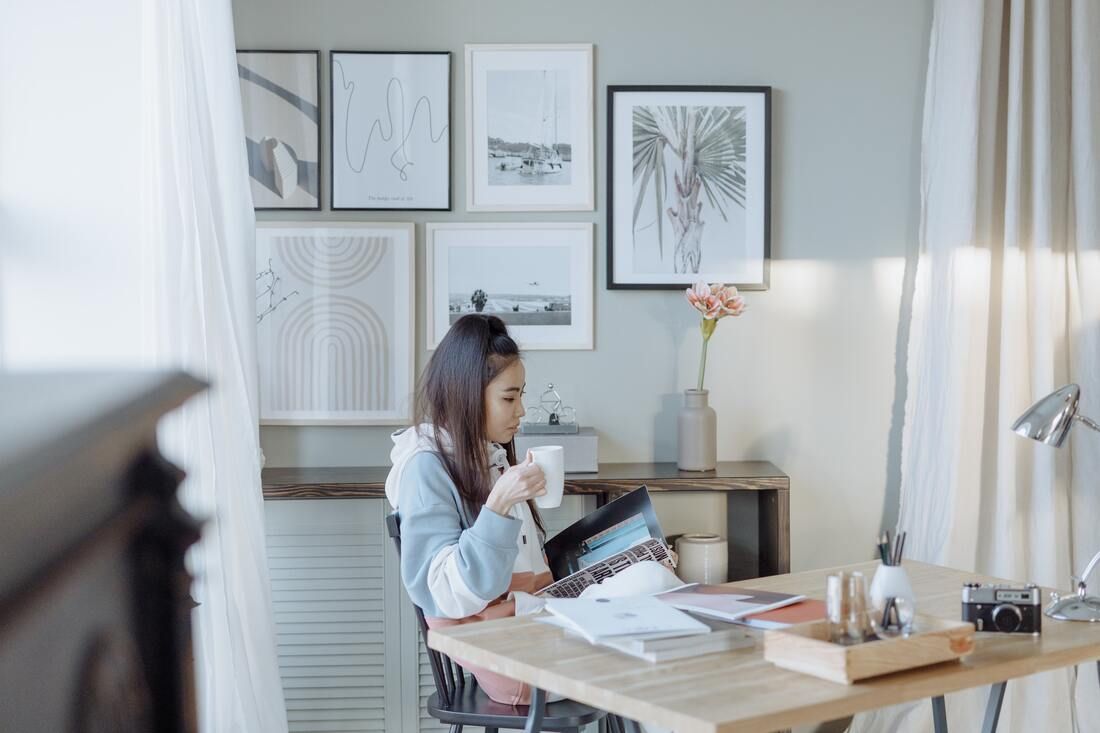|
In this post, we explore how to help bring your focus back to the positive aspects of your life and how to realistically incorporate self care into your busy routine.
One way is to take regular time each day to appreciate the positive things that are happening. Write them down and reflect on them when you need the reminder. When we think of self-care, too often we think of bubble baths and date nights. While both of those things are enjoyable and relaxing, it does not have to be your visual when it comes to self-care. Saying “no” to additional demands is self-care, as is going for a walk around the block for a quiet walk. Eating a healthy meal, or an act of kindness towards another person can also be a form of self-care. Trying something new or engaging in a hobby can also be self-care. Often, we find ourselves saying that we do not have enough time to do some of these things, and our self-care can be one of the first things to drop when we experience stress. However, it is important to remember that taking care of yourself is not a selfish act, it is helping you be the best version of yourself in order to best care for your children. Having a consistent time in the day scheduled for self-care can increase the chance that it happens and can be for just 3 minutes per day to start with. Being energised and refreshed helps us parents with patience and compassion and helps us model to our children that it is ok to take time for ourselves, ask for help and deal with our stresses in healthy ways. So, when you feel the stress and negativity creeping in, remember that it is ok to stop and ask for help. Giving 100% of yourself does not have to mean working until you fall apart. Having someone to talk things through can help give you some perspective, and often just getting things out of your head can be helpful. It may be helpful for you to consider services like - Parentline (1300 30 1300) - lifeline (13 11 14) - Your GP or even the ear of a friend. If you are in need of further support, please contact the clinic to book an appointment with one of our friendly psychologists. Anxiety is one of the most common childhood disorders. Most commonly a child will experience one of the following forms of anxiety:
Some of the ways anxiety may present in your anxious child:
The good news is that anxiety can be managed through therapy to learn how to decrease those worrying thoughts, but you as a parent or caregiver can also help your anxious child by teaching them to calm down and relax their bodies and minds. One technique that you can teach to your anxious child to help them relax is Progressive Muscle Relaxation (PMR). Often when we experience worrying thoughts and events our bodies will respond with muscle tension. This tension we feel can be uncomfortable making it difficult to relax and even go to sleep at night. PMR is the process of tensing different muscle groups for a few seconds and then releasing the tension. This is done in part so that we can identify the areas that we hold the most tension and also so that we can distinguish between tension and relaxation. Here are some basics you can try to help your child using Progressive Muscle Relaxation: Preparation:
What to say: "Take some deep calming breaths in through your nose and out through your mouth... Imagine your tummy is a big balloon and when you breathe in the big balloon is filling with air, and as you breathe out, the air is slowly escaping and the balloon becomes small again. Now...squeeze your toes and feet into a tight ball... hold this... (five seconds)... now relax...let them go loose. Tighten the muscles in your legs by pointing your toes...hold the muscles tight...(wait five seconds)... now let go and feel your legs go as loose as cooked spaghetti. Let's focus on your tummy now. Tense the muscles in your tummy by squeezing it in... hold this... (wait five seconds)...now relax...notice how good your body feels. Lift your shoulders as high as you can, bringing them up to your ears...hold this... (wait five seconds)...now relax....breathe in.... and breathe out... Next you can tense your arms and hands, by stretching them forward and tightening your hands into a tight ball, like you are squeezing a lemon...hold this... (wait five seconds)...now let your arms go floppy like cooked spaghetti...notice how relaxed they feel... Let's move to your face...tense your face by scrunching up your whole face...wrinkle it up as hard as you can...hold this... (wait five seconds)...now relax. Take another deep, calming breath in through your nose and out through your mouth... When you are ready, gently open your eyes and notice how good and calm your body feels." . If you would like more support for your child, please contact one of our friendly psychologists! |
Categories
All
|
Hopscotch & HarmonyAt Hopscotch & Harmony Psychology, you can expect compassionate care and evidence-based guidance on your journey to wellness.
With clinics in Werribee and Belmont, as well as providing online counselling to clients who live throughout Australia, our dedicated team of psychologists and dietitians are committed to providing support to children, teenagers and adults. With a focus on understanding your unique needs, we offer tailored solutions to foster growth and resilience. Trust in our experience and dedication as we work together towards your well-being. Welcome to a place where healing begins and possibilities abound. |
Our services |
Contact usHopscotch & Harmony
Child, Teen and Adult Psychology Our Locations:
WERRIBEE: 1/167-179 Shaws Rd
BELMONT: 92 Roslyn Rd AUSTRALIA-WIDE: Online counselling |
Hopscotch and Harmony respectfully recognise the Aboriginal and Torres Strait Islander people as the first Peoples of the continent now called Australia.
We acknowledge the Bunurong and Wadawurrung people of the Kulin Nation, the traditional owners of the land on which we work, and pay our respects to their Elders, past, present and emerging.
© 2024 Hopscotch and Harmony Pty Ltd



 RSS Feed
RSS Feed
